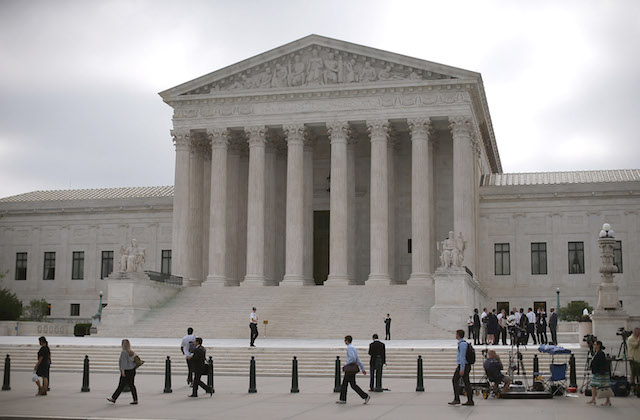SCOTUS Upholds Citizens' Right to Define Own Voting Districts, Prevent Gerrymandering

In one of three major rulings of the day, the Supreme Court found that Arizona’s voter-created system for redrawing state and congressional legislative districts is constitutional.
In 2000, citizens voted for Proposition 106, which amended the state’s constitution to set up a five-member independent commission with the power to use Census data to define voting districts. This took redistricting out of the hands of politicians who historically—across the nation—have engaged in gerrymandering, which the court’s majority opinion defines as “the drawing of legislative district lines to subordinate adherents of one political party and entrench a rival party in power.”
In 2012, the Republican-led state legislature sued, saying that the amendment violated a clause that they interpreted as putting it in charge of redistricting. The court disagreed, making it easier for other states to use similar means to block partisan lawmakers from diluting the power of local voters. Justice Ginsburg wrote the court’s opinion for Arizona State Legislature v. Arizona Independent Redistricting Commission, and Justices Breyer, Kagan, Kennedy and Sotomayor joined. She cited evidence that nonpartisan and bipartisan commissions generally create competitive districts that are likely to survive a legal challenge and concluded:
The people of Arizona turned to the initiative to curb the practice of gerrymandering and, thereby, to ensure that Members of Congress would have “an habitual recollection of their dependence on the people.” The Federalist No. 57, at 350 (J. Madison). In so acting, Arizona voters sought to restore “the core principle of republican government,” namely, “that the voters should choose their representatives, not the other way around.”
United States Attorney General Loretta Lynch released a statement in praise of the ruling: “Arizona’s approach to redistricting is an innovative and effective advance in the effort to reduce gerrymandering and give all Americans an opportunity to make their voices heard. Today’s decision is a victory for the people of Arizona, for the promise of fair and competitive elections and for the principles of democratic self-governance that make our nation exceptional.”
Chief Justice Roberts and Justices Scalia, Thomas and Alito dissented.
